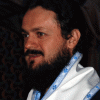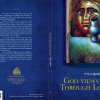Тhe Njegoš Fund for Serbian Studies at Columbia University
The Njegoš Fund for Serbian Studies at Columbia University was established in 1997 to promote language instruction and cultural studies at the University. The Serbian language program at Columbia, one of the oldest in North America, dates back to before World War I, when Mihajlo “Michael” Pupin was a famous professor at Columbia. We at the University have tried to uphold this tradition by improving and expanding the program of instruction in Serbian studies and events for the community.
Instruction: During the last calendar year, 63 students enrolled in a score of International Affairs, Language and Comparative Literature, and Political Science courses that were offered in the South Slavic area. The figure includes language classes, taught now by Dr. Aleksandar Bošković, who was hired to replace Dr. Radmila Gorup; he also taught a course on Serbian culture. Using Njegoš funds, Dr. Gorup was brought back this fall to teach her signature course, “Within and Beyond Empires: Literatures of South Slavs.”



